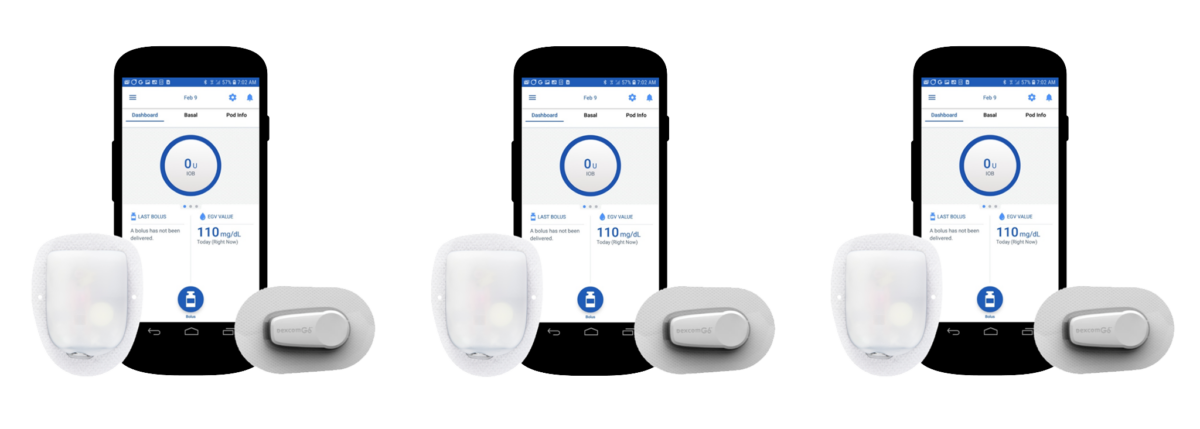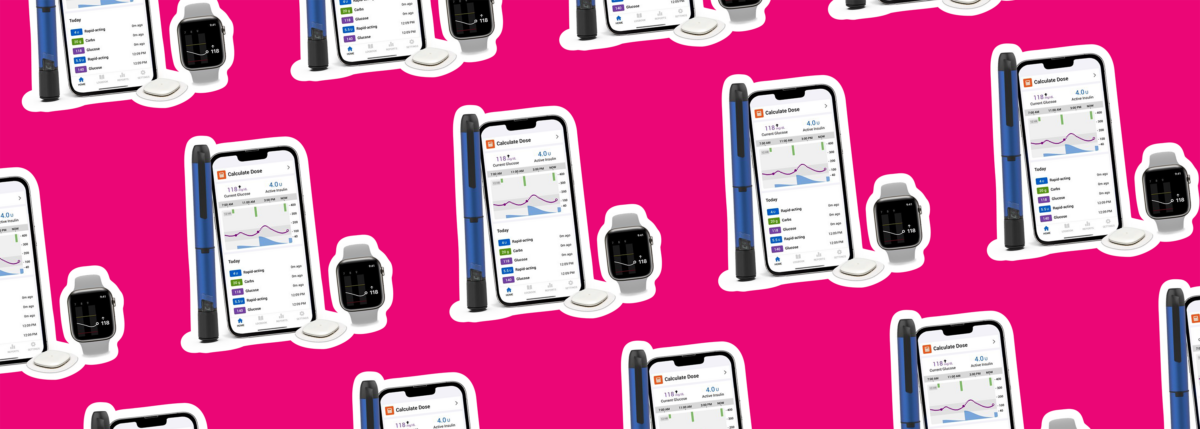Tortoise vs the Hare – Islet Transplantation vs Technology
Written by: Beyond Type 1 Editorial Team
13 minute read
August 8, 2018
The race to find a more effective and non-evasive, injection-free therapy for patients with type 1 diabetes involves many players. The remaining question is not when, but who is going to win: the tortoise or the hare? The tortoise represents biological replacement-based treatments or protection of beta insulin producing cells. The research community is investigating the prevention of beta cell destruction during early diagnosis (honeymoon phase) by administrating protective agents. A procedure called islet cell transplantation replaces beta cell mass (insulin producing cells), and can often provide periods of insulin independence with excellent glycemic control. The hare represents new technologies designed to facilitate day-to-day diabetes management, including continuous glucose monitors and sophisticated insulin pump therapies. Patients living with diabetes can agree technology is advancing rapidly, hence the hare. Twenty years ago, insulin pump therapy and continuous glucose monitoring were rudimentary ideas. Today, patients are bio-hacking insulin pumps and creating closed loop systems that automatically adjust insulin infusion based on blood glucose level. Herein, this review serves to inform, highlight and discuss the progression of diabetes care management.
Type 1 diabetes (T1D) is a multifactorial autoimmune disorder resulting from specific immune-mediated destruction of pancreatic beta cells within the islets of Langerhans. To survive, patients must monitor their blood glucose levels and administer daily insulin injections. Even with tight glycemic control, T1D substantially increases the risk of secondary complications.1 T1D remains a mentally and physically exhausting disease that has yet to have a cure.
The Tortoise: Diabetes Prevention and Islet cell transplantation
Immune reset to neutralize autoimmunity
In an effort to halt progression of beta cell destruction from the time of diagnosis, a large international group of scientists participating in TrialNet are conducting pilot trials aimed at sustaining the ‘honeymoon’ period. 2 Prompt treatment given at diagnosis could potentially reverse the autoimmune state and allow injured beta cells to repair themselves. Treatments such as injection of powerful immune control cells such as T regulatory cells (Tregs), 3,4cells, hematopoietic stem cells after myeloablative conditioning, 5 or mesenchymal stem cells 6 could all restore endogenous insulin (and c-peptide) production by the pancreas and correct hemoglobin A1C (HbA1c). Innovative trials being conducted in Edmonton Canada by Shapiro and colleagues are using a stem-cell mobilizing drug called Plerixafor to direct patients’ own reparative CD34 stem cells from the bone marrow to help them traffic to the islets in the pancreas in an ongoing pilot clinical trials (NCT03182426). Strategies that prevent or delay beta cell destruction offer considerable hope and promise, but we do not yet know if they will also be effective at a point where patients are past the honeymoon phase.
Islet Cell, Xenotransplant and Stem Cell Transplantation
The concept of replenishing beta cell mass extends 23 years before the discovery of insulin, where in 1893, Watson-Williams and Harsant attempted to treat a 13-year-old boy dying from type 1 diabetes by transplanting pieces of sheep’s pancreas. 7, 8 Although the patient had minor glycemic improvements, he ultimately died three days after the procedure, but the concept continued.
Throughout time, pivotal research provided evidence to reverse diabetes by implanting donor islets into animal and human models. The procedure was not practical until the year of 2000 when Shapiro et al. demonstrated insulin independence in series of patients undergoing a steroid-free immunosuppressant regimen known as the “Edmonton Protocol.” 9 Islet transplantation can often achieve insulin independence, but is restricted to patients complicated by severe hypoglycemic unawareness (patients who cannot sense when their blood glucose is low). A need for lifelong immunosuppressant therapy, multiple islet infusions and the human organ donor shortage all mean that islet cell transplantation is not offered more broadly to the T1D population. Researchers are tirelessly trying to overcome these challenges to make this therapy more available.
Today, the standard protocol is an intravenous islet infusion directly into the portal vein inside the liver, but the site is not ideal and many transplanted islets fail to survive to initial engraftment period. The investigation of alternative sites such as the fat pad layer inside the abdomen (omentum), 10 gastric 11 (areas around the stomach) and subcutaneous space 12, 13 (under the skin) represent alternates, but may still be less efficient than the liver site.
When islets are infused, substantial islet loss occurs due to ischemia (poor blood supply), immune reactions including the instant blood-mediated inflammatory reaction (IBMIR), oxidative stress (not enough oxygen) and beta cell toxicity from antirejection drugs. Several of the most powerful antirejection drugs are injurious to beta cell function and survival (‘diabetogenic’) and impair kidney function (nephrotoxic). Developing new antirejection strategies that do not involve calcineurin-inhibitors (CNIs), or shielding islets within macro- or microencapsulation devices may be one means to overcome these challenges, but unfortunately such devices may impede oxygen delivery and blood vessel ingrowth, and may in themselves impede islet survival.
Once islet transplantation becomes a practical and realistic option for patients with T1D, the limited organ donor population will never be sufficient to match the potential demands of the diabetes community. Alternative means to provide a more limitless supply of insulin producing cells include gene therapy, xenotransplantation (of pig-derived islets) or stem cell transplantation (of human or possibly self-derived) cells. Xenotransplant-derived cells from neonatal or adult pig islets provides one potentially attractive source and clinical trials have moved forward slowly. 14 Application of new technological advances in complex human gene editing techniques using CRISPR-Cas9 could allow pig cells to be ‘humanized’ and thereby made less susceptible to accelerated immune attack. 15
Perhaps a better cell source uses human embryonic stem cells (hESC) and induced pluripotent stem cells (iPSC). These stem cells are being intensively investigated for their ability to differentiate into insulin-producing cells. Theoretically, iPSC cells can be obtained from a patients’ own tissues, be dedifferentiated to an equivalent hESC form then redifferentiated into insulin-producing cells.16 This has been done successfully in animal models but has yet to be replicated successfully in patients. It would carry the enormous advantage of being entirely self-compatible, and therefore no antirejection drugs would be required. However such cells would still be susceptible to recurrent autoimmune attack by memory T and B cells primed against T1D autoantigens. hESCs have been differentiated effectively into insulin producing cells. 17-19
A California based company, ViaCyte Inc., has initiated two separate clinical trials in patients with T1D to test out their pancreatic progenitor cells (PEC-01) transplanted and contained within a proprietary macroencapsulation device (Encaptra) in VC-01 (NCT02239354) and VC-02 (NCT03163511) trials. The macroencapsulation devices contain the stem cells and prevent their migration, and potentially shield them from immune attack. The VC-02 trial involves perforating the devices with micro-holes made by laser, to allow more blood vessels to enter and thereby augment cell survival. The downside of that approach is that it compromises immune integrity, and patients need at this point to take antirejection drugs. Ongoing improvements in these devices and materials used to build them will likely overcome these shortfalls over time.
The information above touches only the surface of the research efforts under investigation. A recent report in the 2016 Collaborative Islet Transplant Registry (CITR) revealed 1,927 islet infusions have been completed for 1,011 recipients reporting 80 percent insulin independence following infusion. 20 Optimistically, the National Institute of Health (NIH) funded a phase III multicenter trial in North America and confirmed islet transplantation as a safe and effective procedure that lead to the Federal Drug Administration (FDA) approval. Furthermore, a completed European randomized multicenter clinical trial (NCT01148680) TRIMECO supported islet transplantation as an effective procedure. 21, 22
In conclusion, islet transplantation is a safe procedure that may render insulin independence and sustain glycemic control but it is only for individuals who are hypoglycemic unaware. The future of islet transplantation has the potential to serve as a feasible procedure for all patients with diabetes, but its tortoise-like pace often reduces its enthusiasm.
The Hare: Technology
Since the discovery of insulin in 1921, the speed of technological advancement is propitious. Progress in the field has drastically altered the lives of patients with T1D by implementing safer and faster insulin analogs, insulin pump therapy and improved glucose monitoring.
Insulin Analogs
Insulin can be sub-categorized as short and long-acting insulin analogs where their chemical structure determines the time glucose is absorbed. Long acting insulin mimics the body’s natural tendency to release constant insulin, also known as the “basal rate.” Commercialized long-acting insulins such as Humalin® or Novolin ® can last in the bloodstream for up to 18 hours, whereas Lantus ®, Levemir® or Toujeo® can be present for 24- 30 hours. Moreover, short-acting insulin acts as an immediate therapeutic response for glycemic response, also known as a “bolus.” Commercialized products such as Humalog ® and Novolog ® start working within 15 minutes and last in the bloodstream for up to five hours. Fiasp ® is a new short-acting insulin that starts to work within two and a half minutes, eliminating the need for a pre-meal bolus. Another option is inhalable insulin that is rapidly absorbed known as Afrezza®, but inhaled insulins have not become established mainstream therapy.
Continuous Glucose Monitoring (CGM)
Continuous glucose monitoring (CGM) technology has drastically improved the lives for T1D patients. A CGM is an electrode placed under the skin in the interstitial fluid that measures glucose levels and instantaneously sends information to an external receiver. Not only does CGM’s eliminate the need for multiple finger pricks, it gives constant glucose monitoring throughout the day.
Dexcom recently released its CGM G6® model that can be worn for up to 10 days and connects to the user’s smartphone to display its glucose measurements. It connects to a variety of smart devices such as phones and the Apple watch device. Medtronic, produces the Enlite® CGM that provides wireless data transmission to an insulin pump and can be worn up to six days. To lower the financial cost of CGMs, the Abbott Freestyle Libre® sensor was recently approved. The sensor only displays blood glucose levels when an external transmitter is placed next to it and can be worn for up to 14 days.
Insulin Pump Therapy
An alternative to multiple daily insulin injections is the implementation of the continuous infusion by insulin pump therapy. Medtronic recently released its 670G hybrid closed loop system after earning FDA approval in 2016. A closed loop system is created by a transmitter that automatically sends blood measurements from the CGM to the pump. The system’s algorithm automatically adjusts insulin basal rates based on personalized settings to decrease extreme glycemic fluctuations. The system also senses a rapid drop in blood glucose measurements and stops the release of insulin in an attempt to prevent hypoglycemia. Other insulin pumps on the market is Tandem’s touch screen device that has instantaneous software updates and Omnipod that is a tube-free insulin pump that is controlled by a handheld monitor.
Emerging in the field are start-up companies such as Beta Bionics and Bigfoot Biomedical. Beta Bionics is developing the iLET dual insulin and glucagon system. In an effort to prevent hypoglycemia, this closed-loop system will release a glucagon analog (called dasiglucagon) In anticipation for the pivotal trials for 2020, the company will be launching an insulin-only model around the same time. Bigfoot Biomedical is creating an automatic closed-loop system through their partnership with Abbott’s Freestyle Libre® glucose sensor and is set to hit the market by 2020.
#WeAreNotWaiting DIY
Although the pace of technology development is astounding, it’s limited by government FDA approval. In cause, the frustrated T1D community has started the #WeAreNotWaiting movement by taking the baton into their own hands. Collaborations such as Nightscout and Tidepool transmit data from patients’ CGMs to a cloud-like program and allows themselves and others to view their blood glucose values. Notably, the pace of uptake of these free open access blueprints for self-manufacture of closed loop systems is impressive.
OpenAPS (Open Artificial Pancreas System) and Looping by a “Rileylink” transmitter allows patients with T1D to hack into an outdated insulin and cause it to communicate with a CGM to automatically regulate insulin release based on blood glucose levels. Furthermore, unlike the 670G, patients can personalize their closed-loop systems and adjust bolus and basal rates based on the glycemic index of the foods they’re ingesting. Everything is being kept open source to give innovators, whether they are companies or individuals, the most recent techniques to keep them at the forefront of this branch of diabetes technology. The upside is that these cutting-edge technologies are being supplied at exceedingly low cost and are therefore widely available. The downside is that they are unregulated and carry their own potential dangers. Billions of dollars invested by major industries such as Medtronic to create such systems will no longer pay off, and clear short-term gains by T1D patients may end up crippling future progress as industry may no longer be inclined to invest.
When insulin was discovered at the University of Toronto almost 100 years ago, the University freely licensed the right to manufacture insulin so all patients could access this lifesaving drug. Ten years ago it cost approximately $200 per month for an insulin prescription, but now costs almost $1000 per month. The inflation is in part due to three-companies that are monopolizing insulin and in cause, many patients die because they cannot afford access to this mandatory lifesaving drug. To circumvent the price of insulin, a project called Open Insulin is undertaking the daunting task of creating a generic insulin that will be more affordable. In doing so, they isolate pro-insulin from an E. coli culture and develop a mature insulin that can be automatically manufactured with their low-cost method.
Concluding Remarks
Science is competitive, and there are many challenges ahead before new xenotransplant and stem cell based therapies can deliver in the clinic. Some believe the research community is at fault for withholding knowledge or processes that may transform diabetes care. We argue that this is not the case, but only by innovative scientific ideas, appropriate controlled clinical testing and safety checks can scientific advances be safely translated.
The altruistic behavior of researchers, physicians, some corporations and entrepreneurs are tireless trying to find a better treatment than insulin. There has been much progress in the field of T1D management. The pace of the race is relatively fast given the complexity of the disease and the hurdles to overcome. The hare has made considerable progress over the past five years with wearable technological advances for glucose monitoring and insulin delivery. These are still far from perfect. The tortoise of cell-based transplant therapies is making slow but steady progress. Perhaps slow-but-steady will eventually win the race.
Authors
Anissa Gamble has been living with type 1 diabetes, celiac disease and Hashimoto’s since 2001. She is a current MSc student in experimental surgery studying islet cell transplantation under the supervision of Dr. A.M.J Shapiro at the University of Alberta. She completed her BSc playing NCAA Division 1 hockey at Robert Morris University.
Yannick van de Velde is a summer BSc student at the University of Alberta researching islet cell transplantation. He hopes one day his brother, who has type 1 diabetes can be cured and never have to take insulin again.
James Shapiro MD PhD is a scientist, researcher and transplant surgeon whose lifetime efforts have focused on development cell transplant-based new therapies for patients with T1D.
References
- Miller RG, Secrest AM, Sharma RK, Songer TJ, Orchard TJ. Improvements in the life expectancy of type 1 diabetes: the Pittsburgh Epidemiology of Diabetes Complications study cohort. Diabetes 2012; 61:2987-92.
- Skyler JS, Greenbaum CJ, Lachin JM, Leschek E, Rafkin-Mervis L, Savage P, et al. Type 1 Diabetes TrialNet–an international collaborative clinical trials network. Ann N Y Acad Sci 2008; 1150:14-24.
- Bluestone JA, Buckner JH, Fitch M, Gitelman SE, Gupta S, Hellerstein MK, et al. Type 1 diabetes immunotherapy using polyclonal regulatory T cells. Sci Transl Med 2015; 7:315ra189.
- Tang Q, Bluestone JA. Regulatory T-cell therapy in transplantation: moving to the clinic. Cold Spring Harb Perspect Med 2013; 3.
- Couri CE, Oliveira MC, Stracieri AB, Moraes DA, Pieroni F, Barros GM, et al. C-peptide levels and insulin independence following autologous nonmyeloablative hematopoietic stem cell transplantation in newly diagnosed type 1 diabetes mellitus. JAMA 2009; 301:1573-9.
- Hu J, Yu X, Wang Z, Wang F, Wang L, Gao H, et al. Long term effects of the implantation of Wharton’s jelly-derived mesenchymal stem cells from the umbilical cord for newly-onset type 1 diabetes mellitus. Endocr J 2013; 60:347-57.
- Banting FG, Best CH, Collip JB, Campbell WR, Fletcher AA. Pancreatic Extracts in the Treatment of Diabetes Mellitus. Can Med Assoc J 1922; 12:141-6.
- Williams P.
Notes on diabetes treated with extract and by grafts of sheep’s pancreas. Br Med J 1894; 2:1303-4.
-
Shapiro AM, Lakey JR, Ryan EA, Korbutt GS, Toth E, Warnock GL, et al. Islet transplantation in seven patients with type 1 diabetes mellitus using a glucocorticoid-free immunosuppressive regimen. N Engl J Med 2000; 343:230-8.
-
Baidal DA, Ricordi C, Berman DM, Alvarez A, Padilla N, Ciancio G, et al. Bioengineering of an Intraabdominal Endocrine Pancreas. N Engl J Med 2017; 376:1887-9.
-
Fujita M, McGrath KM, Bottino R, Dons EM, Long C, Kumar G, et al. Technique of endoscopic biopsy of islet allografts transplanted into the gastric submucosal space in pigs. Cell transplantation 2013; 22:2335-44.
-
Pepper AR, Pawlick R, Bruni A, Wink J, Rafiei Y, O’Gorman D, et al. Transplantation of Human Pancreatic Endoderm Cells Reverses Diabetes Post Transplantation in a Prevascularized Subcutaneous Site. Stem Cell Reports 2017; 8:1689-700.
-
Gala-Lopez B. L. PAR, Dinyari P., Malcolm A. J., Kin T., Pawlick L. R., Senior P. A., and Shapiro A.M. J. Subcutaneous clinical islet transplantation in a prevascularized subcutaneous pouch – preliminary experience. CellR4 2016; 4:e2132.
-
Matsumoto S, Abalovich A, Wechsler C, Wynyard S, Elliott RB. Clinical Benefit of Islet Xenotransplantation for the Treatment of Type 1 Diabetes. EBioMedicine 2016; 12:255-62.
-
Yang L, Guell M, Niu D, George H, Lesha E, Grishin D, et al. Genome-wide inactivation of porcine endogenous retroviruses (PERVs). Science 2015; 350:1101-4.
-
Takahashi K, Yamanaka S. Induction of pluripotent stem cells from mouse embryonic and adult fibroblast cultures by defined factors. Cell 2006; 126:663-76.
-
Rezania A, Bruin JE, Arora P, Rubin A, Batushansky I, Asadi A, et al. Reversal of diabetes with insulin-producing cells derived in vitro from human pluripotent stem cells. Nat Biotechnol 2014; 32:1121-33.
-
Pagliuca FW, Millman JR, Gurtler M, Segel M, Van Dervort A, Ryu JH, et al. Generation of functional human pancreatic beta cells in vitro. Cell 2014; 159:428-39.
-
Zhou Q, Brown J, Kanarek A, Rajagopal J, Melton DA. In vivo reprogramming of adult pancreatic exocrine cells to beta-cells. Nature 2008; 455:627-32.
-
Investigators TCCCa. 9th Collaborative Islet Transplant Registry 2014 Annual Report. CITR 2016.
-
Forbes S, Senior PA, Shapiro AMJ. Islet transplantation in type 1 diabetes: moving forward. Lancet Diabetes Endocrinol 2018.
-
Lablanche S, Vantyghem MC, Kessler L, Wojtusciszyn A, Borot S, Thivolet C, et al. Islet transplantation versus insulin therapy in patients with type 1 diabetes with severe hypoglycaemia or poorly controlled glycaemia after kidney transplantation (TRIMECO): a multicentre, randomised controlled trial. Lancet Diabetes Endocrinol 2018.

Author
Beyond Type 1 Editorial Team
Beyond Type 1 is the largest diabetes org online, funding advocacy, education and cure research. Find industry news, inspirational stories and practical help. Join the 1M+ strong community and discover what it means to #LiveBeyond a diabetes diagnosis.
Related Resources

Already compatible with Dexcom’s G6 and G7 continuous glucose monitors (CGMs), the Omnipod 5 Automated...
Read more

The younger a person is diagnosed with type 2 diabetes, especially those with obesity, the...
Read more

The Oura Ring, which tracks things like sleep, heart rate, and activity, is joining forces...
Read more

